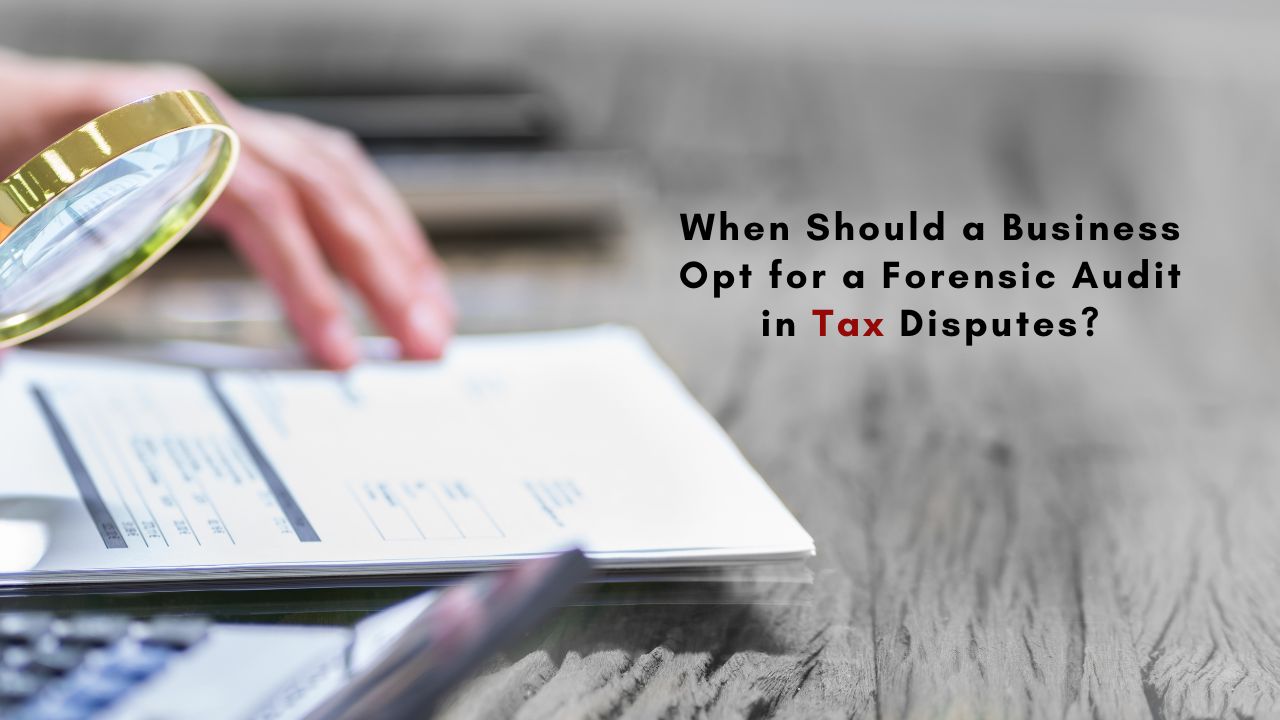Introduction
In the world of business, tax disputes can arise unexpectedly and create significant financial and reputational risks. Addressing these disputes effectively requires a systematic and transparent approach. One powerful tool businesses can use in such scenarios is a forensic audit. Understanding when and why to conduct a forensic audit can make a critical difference in resolving tax-related issues and safeguarding your company’s future.
Understanding the Basics of a Forensic Audit
A forensic audit is a specialized examination of financial records to uncover discrepancies, fraud, or misconduct. Unlike standard audits, the goal of a forensic audit is to gather evidence that can be presented in legal or regulatory proceedings. This type of audit is particularly relevant in situations where tax authorities suspect non-compliance or when businesses need to defend their practices during tax disputes.
The forensic audit process involves a meticulous review of records, interviews with key personnel, and analysis of transactions to identify irregularities. This process provides clarity and ensures that all relevant information is available to address disputes effectively.
Situations Requiring a Forensic Audit
Tax disputes arise in various scenarios, from allegations of underreported income to claims of fraudulent deductions. Businesses should consider a forensic audit in the following cases:
- Unexplained Financial Discrepancies: If discrepancies appear in your financial records, a forensic audit can identify their root cause.
- Suspected Fraud: When fraud is suspected within an organization, conducting a forensic audit helps uncover the extent of misconduct and those responsible.
- Regulatory Investigations: If tax authorities initiate an investigation, a forensic audit provides a comprehensive overview of your compliance status.
- Litigation Support: During legal disputes involving tax issues, forensic audit findings offer credible evidence to support your case.
These audits not only reveal financial irregularities but also demonstrate your willingness to cooperate with authorities, potentially minimizing penalties.
Key Steps in the Forensic Audit Process
Conducting a forensic audit involves several critical steps, each designed to ensure accuracy and transparency. The forensic audit process typically includes:
- Defining the Scope: Auditors determine the focus of the investigation, whether it’s limited to specific transactions or encompasses broader financial activities.
- Gathering Documentation: Collecting relevant financial records, contracts, and communications is essential for a comprehensive review.
- Analyzing Data: Auditors review the gathered information, focusing on transactions that deviate from standard practices.
- Interviews and Inquiries: Speaking with key stakeholders helps auditors gain insights into questionable activities.
- Reporting Findings: Auditors compile their findings into a detailed report, outlining discrepancies and providing evidence.
By following these steps, businesses can ensure their financial practices are thoroughly examined and defensible during disputes.
Role of Tax Audits in Resolving Disputes
A tax audit, distinct from a forensic audit, is a standard examination conducted by tax authorities to verify the accuracy of financial records and tax filings. It plays a crucial role in resolving disputes by ensuring compliance with applicable laws.
However, when discrepancies arise during a tax audit, businesses may be asked to provide specific documents. Common documents required for tax audits include:
- Financial statements
- Income tax returns
- Bank statements
- Details of assets and liabilities
- Supporting invoices and receipts
When tax audits indicate potential non-compliance, initiating a forensic audit can help businesses delve deeper into the underlying issues, ensuring clarity and transparency in addressing disputes.
Outsourced CFO and Bookkeeping Services in Forensic Audits
Navigating tax disputes and audits can be overwhelming, especially for small to mid-sized businesses. Leveraging professional support through Virtual CFO Services or outsourced CFO services can be immensely beneficial.
Virtual CFOs bring expertise in financial analysis, tax planning, and compliance, helping businesses stay prepared for audits and disputes. They provide guidance on maintaining accurate records and identifying risks before they escalate into significant issues.
Similarly, outsourced bookkeeping services play a critical role in ensuring financial data is accurate and up to date. These services streamline the management of invoices, expenses, and payroll, reducing the chances of errors that could trigger tax disputes.
By relying on these services, businesses can focus on their core operations while ensuring their financial records are audit-ready.
Importance of Timely Action
One of the most crucial aspects of opting for a forensic audit is timing. Delaying the process can exacerbate financial and reputational risks, especially if disputes escalate. Engaging professionals to conduct a forensic audit at the first sign of discrepancies demonstrates your commitment to resolving issues proactively.
Timely forensic audits also provide businesses with a clearer understanding of their financial practices, enabling them to implement corrective actions and enhance internal controls.
Conclusion
Forensic audits are a powerful tool for businesses facing tax disputes, providing clarity, transparency, and actionable insights. From uncovering financial irregularities to defending against allegations, a forensic audit helps businesses navigate complex tax-related challenges effectively.
With the support of Virtual CFO Services, outsourced CFO services, and outsourced bookkeeping services, businesses can ensure their financial records are accurate and compliant, reducing the likelihood of disputes. Whether triggered by suspected fraud or regulatory investigations, a forensic audit serves as a robust defence mechanism for any organization seeking to resolve tax disputes and maintain trust with stakeholders.
